

Where and how to sell your products and services
11TH SEPTEMBER 2023
Knowing where to sell your products isn’t easy. Should small businesses sell on platforms? At pop-ups? Should you collaborate? Or choose wholesale or opt for a bricks and mortar shop? The founders of Bread & Jam share their hard won experience…

Where to sell your products: expert advice from Bread & Jam
Bread & Jam are full of insight on this subject. They sell beautifully designed, meaningful gifts that have caught the eye of huge retailers and wholesalers, from Anthropologie and Fortnum & Mason, to online marketplaces like ours. Founded by husband and wife team, Catherine Douglas and Jamie Douglas in 2012, they work from their converted farmhouse in Cumbria and share the lessons they have learnt about where to sell products.
When Jamie’s design agency went down in the 2008 financial crash, he and Catherine found themselves freelancing without much income and two young children to support. He said, “We knew we worked well together, decided to pool our resources and within a month we’d launched Bread & Jam.”
Bread & Jam’s products: what do they offer?
Their USP is selling products that make you feel happy and good about life. One of their bestsellers is a notepad called, ‘Moan and move on’, to write your latest gripe in, which can then be torn up and thrown away. Jamie says, “We’re not afraid to have a moan but if it’s not important, don’t dwell on it. Bin it and move on. It resonated with a lot of people during lockdown.” So what’s their advice on deciding where to sell?
Should you sell on marketplaces?
After setting up on non-curated online marketplaces like Etsy and Folksy, it wasn’t long before notonthehighstreet contacted Catherine and Jamie to sell with them in September 2012.
Jamie said, “It went crackers once we sold on notonthehighstreet. In our busiest year, we had 600 orders in a single day. It was stressful coming in on a Monday and realising you had several thousand orders to pack up and get out, but we did it!” — although that was many years ago.
Despite having just a small amount of stock and a single member of staff, they could see how lucrative the world of online was so they made some calls, took more staff on, worked longer hours and got the orders out. Jamie said, “That’s the beauty of staying small, you can react to situations, even if it means you’re packing late into the night or asking your staff to come in at 6am with bacon butties! We had the equipment so we could turn things around relatively quickly.” This was their experience but it’s different for everyone and a business’s fortunes can easily change if their brand does.
"That’s the beauty of staying small, you can react to situations, even if it means you’re packing late into the night or asking your staff to come in at 6am with bacon butties! We had the equipment so we could turn things around relatively quickly."
How to choose the right marketplace for your products
The most important thing is finding the marketplace that’s right for you. You’ll need to explore the following:
- Do you believe in their brand and their marketing? Will it represent your own brand well?
- How do they treat the small businesses that sell with them? And how do they treat their customers?
- What are their true values? Do you see these in action and do they align with your own?
- What are the people like who run the company? Are they just trying to make money or are they real champions of small businesses like yours?
- What’s the commission rate? Or the rules of selling? Are they fair?
- Are they discerning about who they take on?
- Does the marketplace have a sound, long-term plan that you believe in?
Remember, bigger is not always better. You want your business to get seen by new customers (and plenty of them) but it needs to be the right kind of customers for your business. Otherwise, you risk damaging the loyalty and respect you’ve worked so hard to build up. There are other ways to scale your business while preserving the magic through innovation too. For ideas, read why innovation is important in business and the best way to innovate.
Can you make money selling wholesale?
During the pandemic, Bread & Jam improved their retail website and offerings. They shared, “Whilst we were busy with our UK sales channels, we found we were neglecting our wholesale website and relied on a few wholesalers consistently placing large orders which is risky. So we decided to combine our wholesale and retail websites to better serve both types of customer.”
With the business growing, Bread & Jam’s online presence was making serious noise and when their dream high street retailer approached them, things ramped up a notch. “Anthropologie EU wanted to sell one of our products so we cracked out a deal because we knew what it would do for our brand’s credibility. We didn’t hesitate.”
How to choose a wholesale supplier: factors to consider
- Make sure your prices include delivery, shipping and VAT
- Factor in your shipping costs and exchange rates if you’re selling overseas
- Make sure you really look into the brand you want to sell with
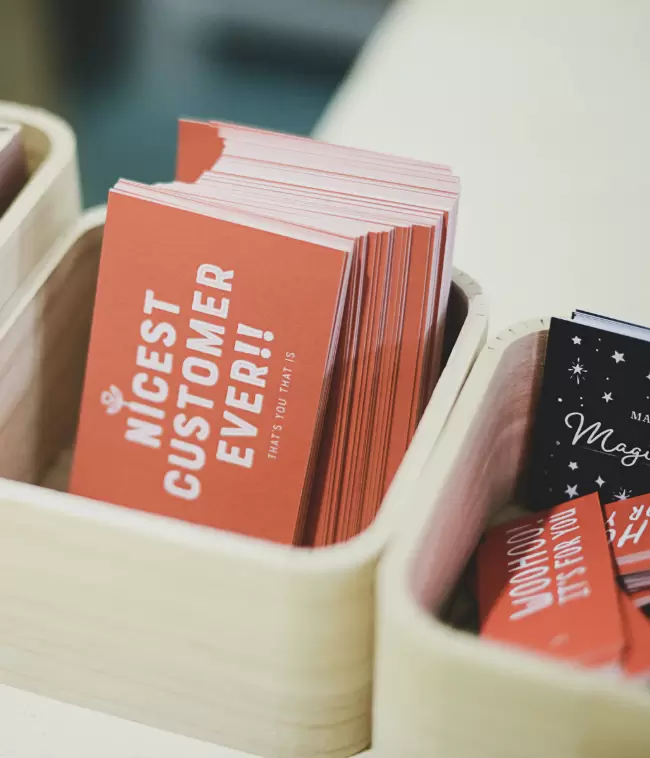
"Anthropologie EU wanted to sell one of our products so we cracked out a deal because we knew what it would do for our brand’s credibility. We didn’t hesitate."
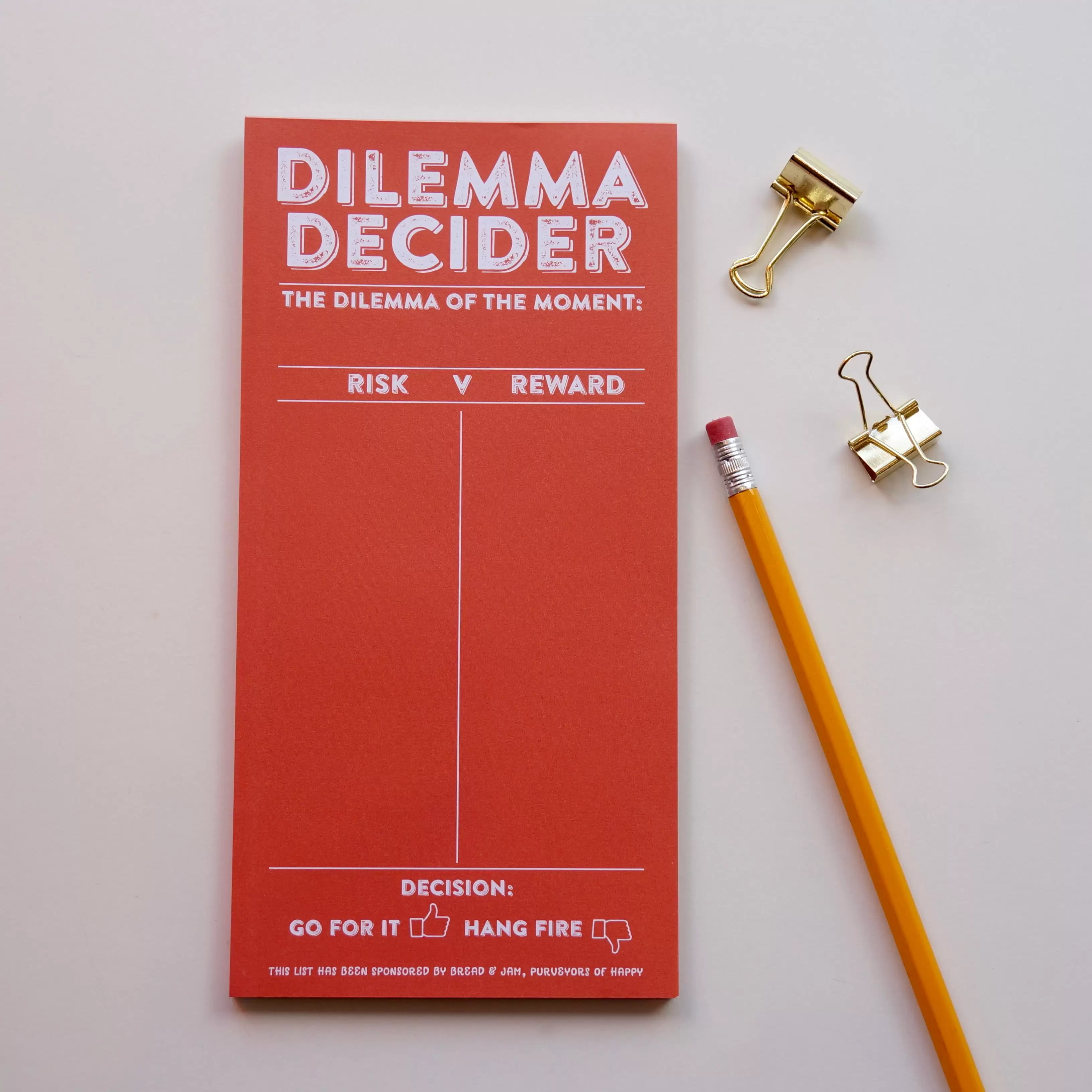
Collaborations: Bread & Jam’s experience with Anthropologie US
Six months after working with Anthropologie EU, Anthropologie US asked if they could stock one particular Bread & Jam product too, before asking them if they would like to collaborate on other products. Jamie said, “We ended up doing some bespoke products with them and worked with them for two and a half years.”
But when it comes to collaborations, Bread & Jam felt there were highs (such as reaching big, new audiences and gaining respect for your own work), but also lows. He added, “We were in awe of the fact that they had asked us to collaborate but we were also very comfortable designing in our studio so it was out of our comfort zone doing a huge collaboration because we’d never done anything on that level before. They were asking us to design things around their current trends and we’re not trend led, we’re more tone of voice led, so we parted ways.”
Some considerations to think about when choosing a wholesaler
The couple admit it was a ‘complete eye opener’ working with bigger organisations, and found it lucrative but demanding…
- You might get a 100-page supplier’s manual on how their business works
- Plus guidelines on how they would like their product to be sold to them
- You might need to ramp up production, learn how to ship products into distribution centres and be aware of all the clauses should any products be damaged or lost in transit
Should you sell in department stores like Selfridges or Fortnum & Mason?
Bread & Jam have been approached by Fortnum & Mason and Selfridges too, and shared their experience. “We met Fortnums at a London trade show called Top Drawer. We got chatting and they wanted us to have a concession in their store at Christmas to sell our test tube sets with messages inside. They wanted us to produce a customised version for them that we could personalise in store.” Having a stand at the trade shows is a great way to meet retailers if you’re interested. But will it work for you?
How to get your products into retail stores? The practical side of joining a big retailer
Although it felt like an incredible opportunity, the logistics were a worry. We knew we’d be on call 24/7 and felt we couldn’t deliver on that huge commitment being so far away from London.” It’s also worth thinking about the timing. “Christmas is our busiest time, so we couldn’t be up in Cumbria and in London. We knew we could hire staff but we’d heard horror stories about people not turning up. We were nervous about other people manning our concession and we knew the staffing costs wouldn’t be worth it for us. Also if anything went wrong, we’d have to be in London and it was becoming a logistical nightmare which could affect our retail business.” So they declined, though it was amicable on both parts.
Things you should know before selling through big retailers
It’s wonderful for small businesses to suddenly increase their sales. Yet Catherine and Jamie realised that when dealing with bigger retailers’ demands, they were being pulled away from the things they loved and said, “Suddenly the bigger we got, the more we were shuffling paperwork and managing staff and it’s not where we wanted to be.
The numbers were so high that it meant we had to move away from the production side and become managers overnight because the combination of retail and wholesale was too much. Now we’re back creating things and having more control again and it’s a lovely place to be.” But what was right for them might not be for you. It all depends on the individual business.
Make sure you protect your designs so you can’t be copied
One lesson they have learned when dealing with bigger retailers is to go into it with your eyes open. “There are some unscrupulous retailers that will get you on board, take your ideas and then trade on without you. Stores have tried to do that to us and then asked to work with us again. It’s weird for us to agree, but perhaps it’s a learning curve for them and they won’t do it to anyone else!”
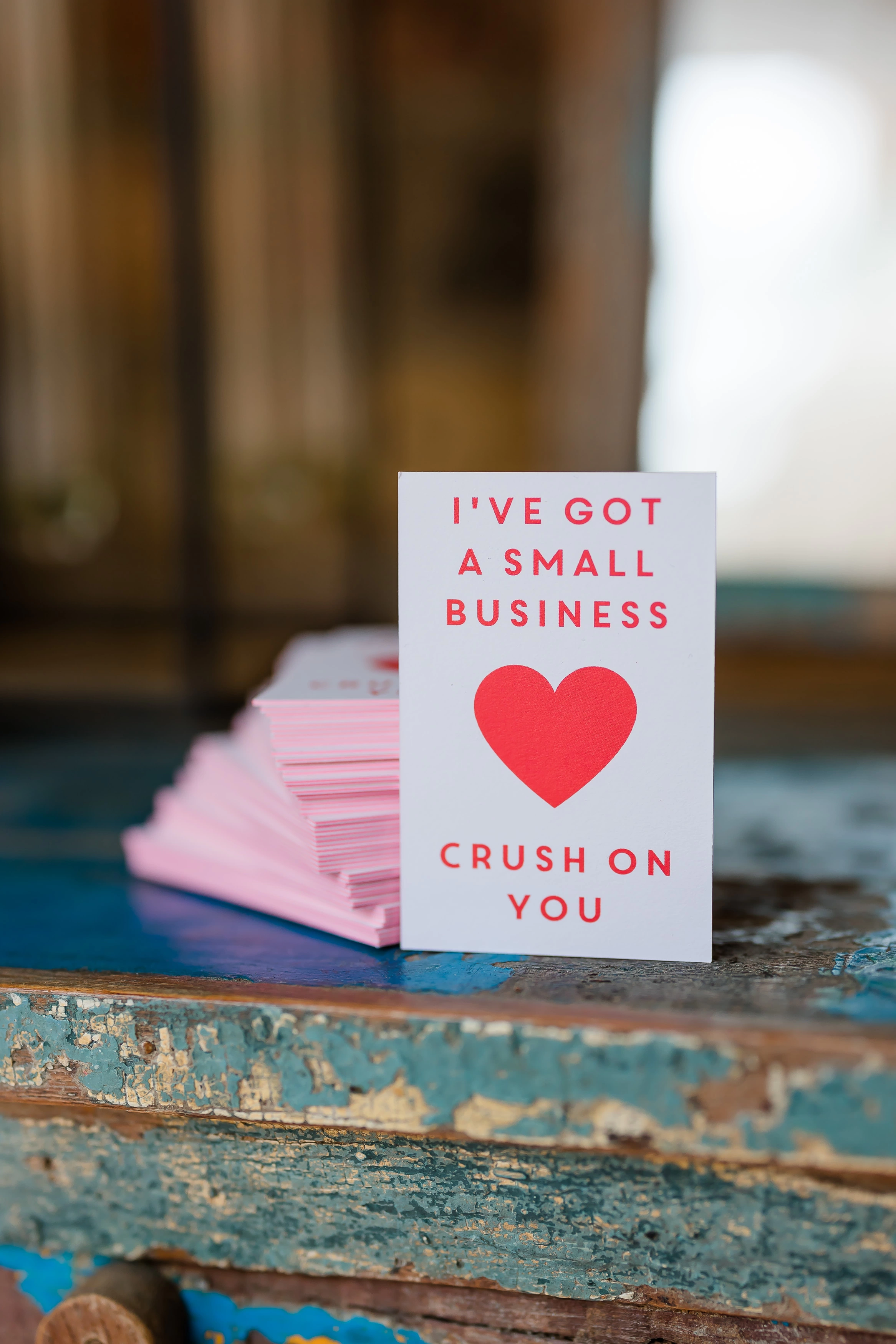
The couple admit it was a ‘complete eye opener’ working with bigger organisations, and found it lucrative but demanding.
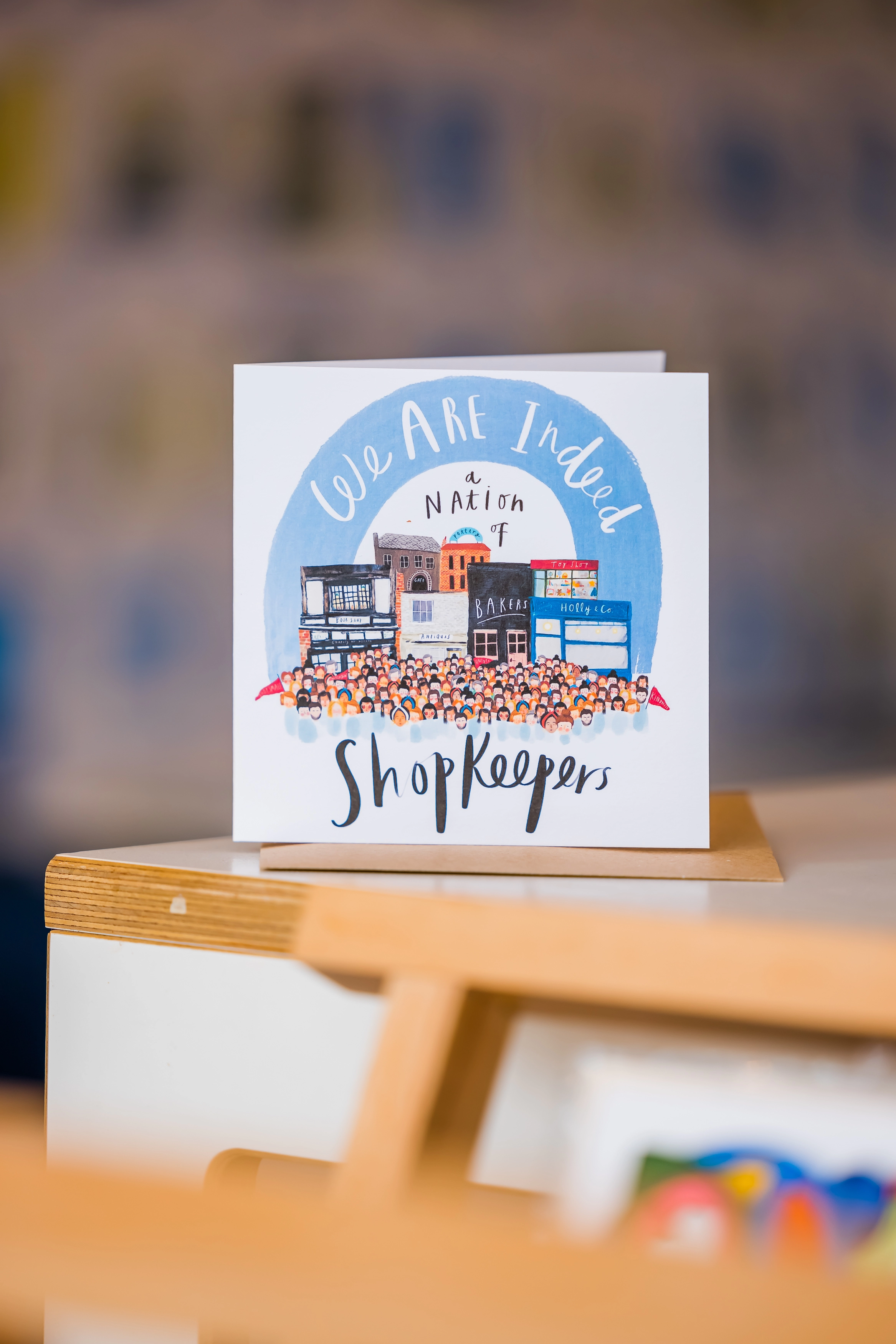
Should you open a shop and start a bricks and mortar business?
It was a dream of Catherine and Jamie’s to have a bricks and mortar shop one day. They had a really strong online presence and a good wholesale backbone to support this too. After finding a semi-ruined manor house with a tea room, they were about to move in in October 2019 and launch a shop and cafe there, but it all fell through just two weeks before. As it happens, the first lockdown started six months later so they would have had to close anyway.
Questions you should ask yourself before opening a physical retail space
- What will your business sell and is there a real need for it in the area?
- Who are your competitors and will you offer something different?
- Who is your target customer?
- What kind of prices will you need to set in order to make money?
- Is it logistically possible for you to run a shop?
The pros and cons of pop-up shops
Pop-ups can help…
- Give your brand credibility
- Drive online sales
- Reach new audiences and build relationships
- Test out products to see what works
- Give you a talking point
- Provide real experience
- Make you part of a community
So if you can’t afford to run a shop, pop-ups and markets can be a great alternative. All in all, there are many options open to you aside from just selling online — you just need to find the one or ones that are right for your business.
It’s wonderful for small businesses to suddenly increase their sales. Yet Catherine and Jamie realised that when dealing with bigger retailers’ demands, they were being pulled away from the things they loved
Where to sell products: key takeaways…
Here are three key points to remember.
1. Exploring new sales avenues? Do your research:
Jamie says, “Our advice to small businesses being approached by high street retailers is to go for it because you never know where it’s going to lead.” Just make sure you do your research to check it’s right for you and always trust your gut.
2. Judge each new sales opportunity on its individual merits:
Avoid having a blanket response. Take the time to work out what’s in it for you. The same goes for any collaborations, promotions or marketing opportunities, a lot may be useless, but don’t ignore them all. Some things are worth investigating and could be amazing.
3. Just keep going:
Lots of things can go wrong when taking up new opportunities, but understand that mistakes happen and be prepared to make them and then move forwards.
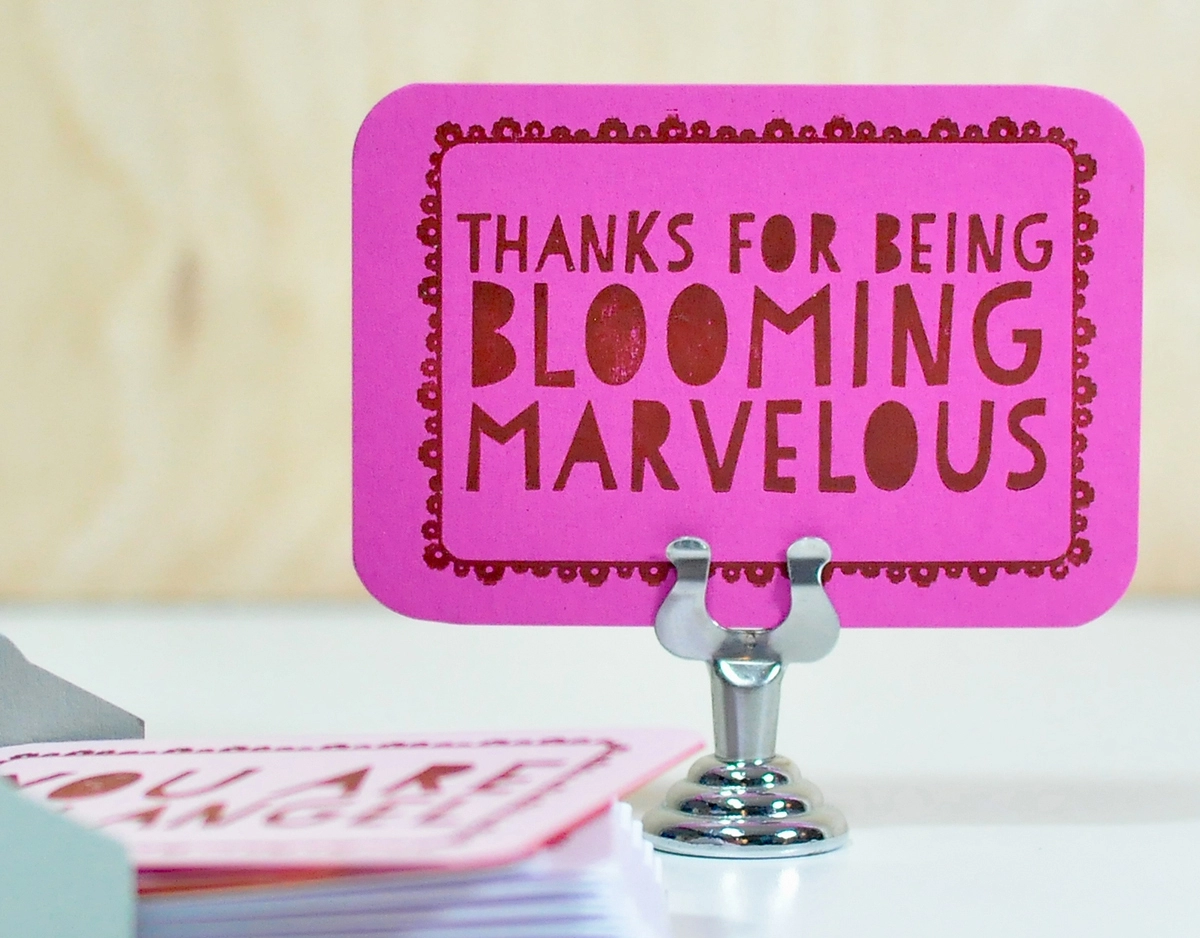
Images: 'Dilemma Decider' notepad, 'Thanks For Being Blooming Marvellous' cards and 'Nicest Customer Ever' business cards — by Bread & Jam, 'We Are An Independent Nation Of Shopkeepers' card — by Katie Pillinger
Related content
MORE ARTICLES ON PRODUCT & INNOVATION


Why innovation is important in business and the best way to innovate

